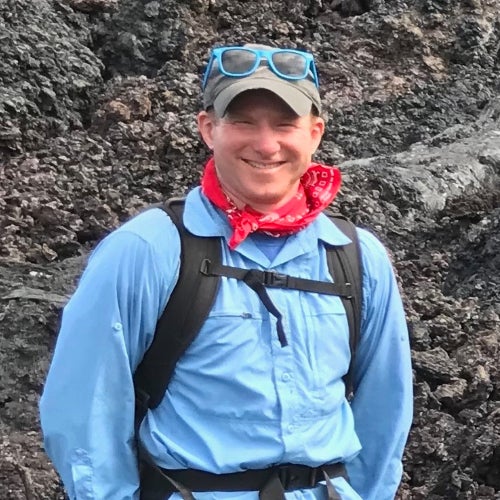January 12, 2021
When Adam Soule begins work at the University of Rhode Island’s Graduate School of Oceanography later this month, he will not only become a professor of oceanography, but he will take the reins of one of the largest research initiatives in the University’s history.
As director of the $94 million Ocean Exploration Cooperative Institute, he will guide the efforts of five research institutions in support of ocean exploration and responsible resource management while improving the scientific understanding of the deep sea and strengthening the nation’s blue economy.
Under Soule’s leadership, the five partners in the Cooperative Institute will spend the coming years working closely with the National Oceanic and Atmospheric Administration’s Office of Ocean Exploration to survey and characterize an estimated 3 billion acres of U.S. ocean territory.
“The Cooperative Institute is, to me, a really exciting opportunity for the ocean science community,” Soule said. “Our goal is to develop the technology needed to explore the ocean more effectively and efficiently. And my vision is for the Institute to develop new tools and take them all the way to operation.
“There are many technology prototypes that never really become effective tools because scientists only have the resources to build one,” he added. “But this institute has the resources to develop technology, test it, put it into use and deliver it to the oceanographic community. We’ll be able to accelerate that process.”
The Cooperative Institute will collaborate with NOAA to explore the seafloor in U.S. territorial waters, as well as the mid-water zone where 95 percent of all marine creatures are found. It will also explore the surface of the sea in cooperation with the National Geographic Society.
“Dr. Soule brings an incredible vision for the science and technology of the Cooperative Institute that is well in line with the science and technology objectives of ocean exploration at NOAA,” said Paula Bontempi, dean of the Graduate School of Oceanography. “I’m also thrilled to have him join the GSO Marine Geology and Geophysics faculty as an expert in submarine eruptions and investigative technologies, science that is extremely complementary to our existing faculty and globally relevant.”
Prior to his appointment at URI, Soule was chief scientist for deep submergence at the Woods Hole Oceanographic Institution, where he provided scientific guidance for the National Deep Submergence Facility. He also conducted research on underwater volcanoes.
“I am interested in how submarine volcanoes work, how frequently they erupt, and how they impact the environment around them,” he said. “There’s a huge amount of exploration and discovery involved in this work, and since they’re in places that are difficult to get to, it’s been my privilege to go to the seafloor in a submersible and see things no one has seen before.”
When he arrives on the URI Narragansett Bay Campus, Soule plans to go on a listening tour to meet the faculty and staff of the Graduate School of Oceanography to learn how they would like to interact with the Cooperative Institute. Among his other priorities is the development of a strategic plan “so we are advancing down a path rather than imagining what’s going to happen year by year,” he said.
Soule is especially looking forward to the new research ship that will be operated by URI beginning in 2023 and the construction of a new Ocean Technology Building, which he sees as useful elements in accomplishing his goals.
“Those were key factors in my decision to come to GSO because they showed that the state of Rhode Island is supporting oceanography,” he said. “The ship will be a new modern platform that can be a testbed for technologies, and the building will attract engineers to develop these new technologies. These facilities will be perfectly aligned with the Cooperative Institute, so this is a great time to come to GSO.”
In addition to URI, the partners in the Ocean Exploration Cooperative Institute are the Woods Hole Oceanographic Institution, the Ocean Exploration Trust, the University of New Hampshire and the University of Southern Mississippi.

